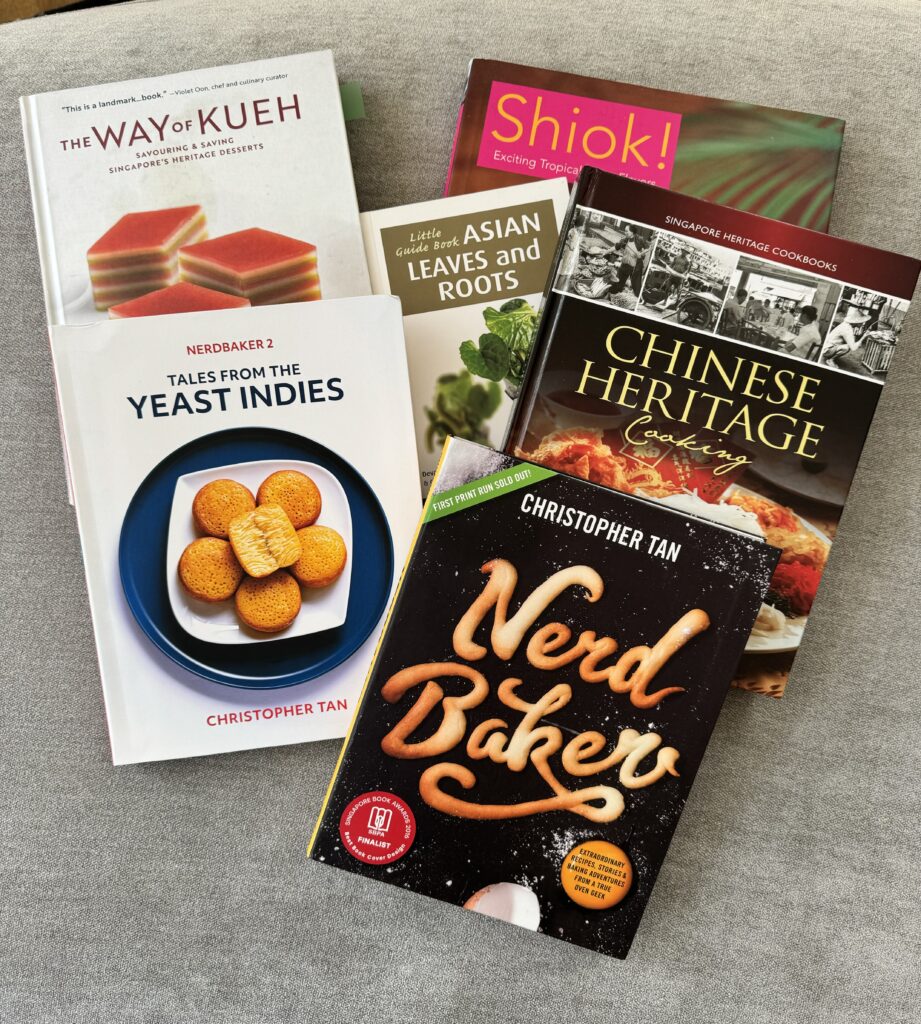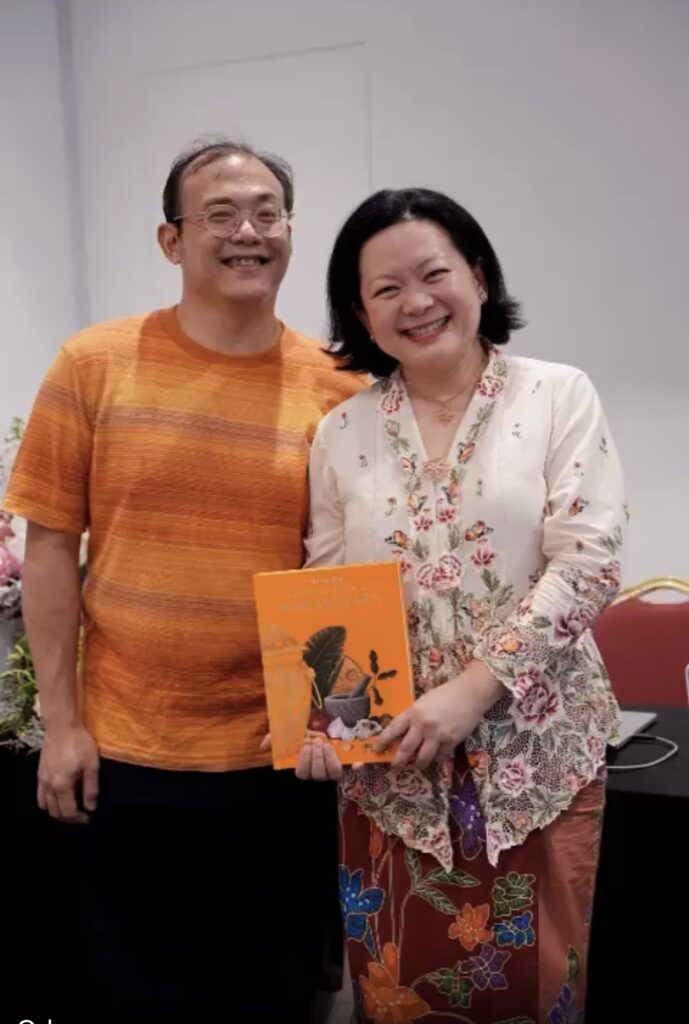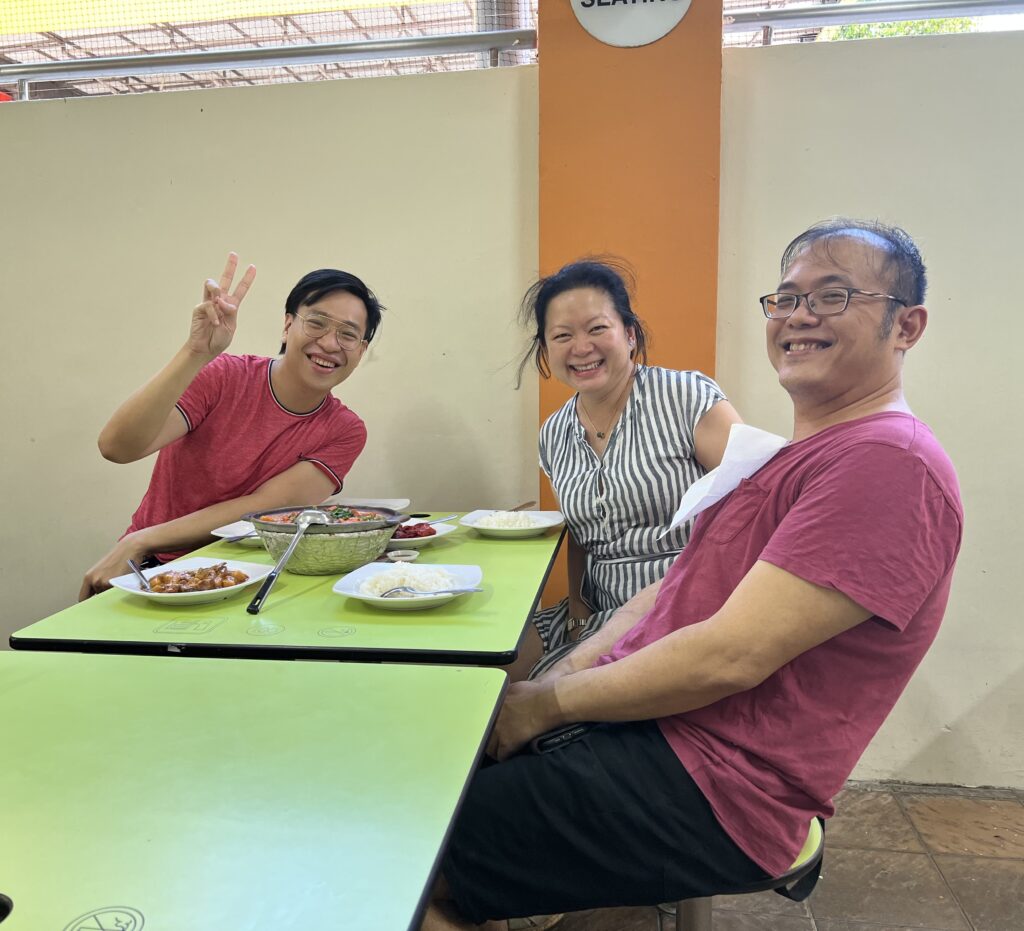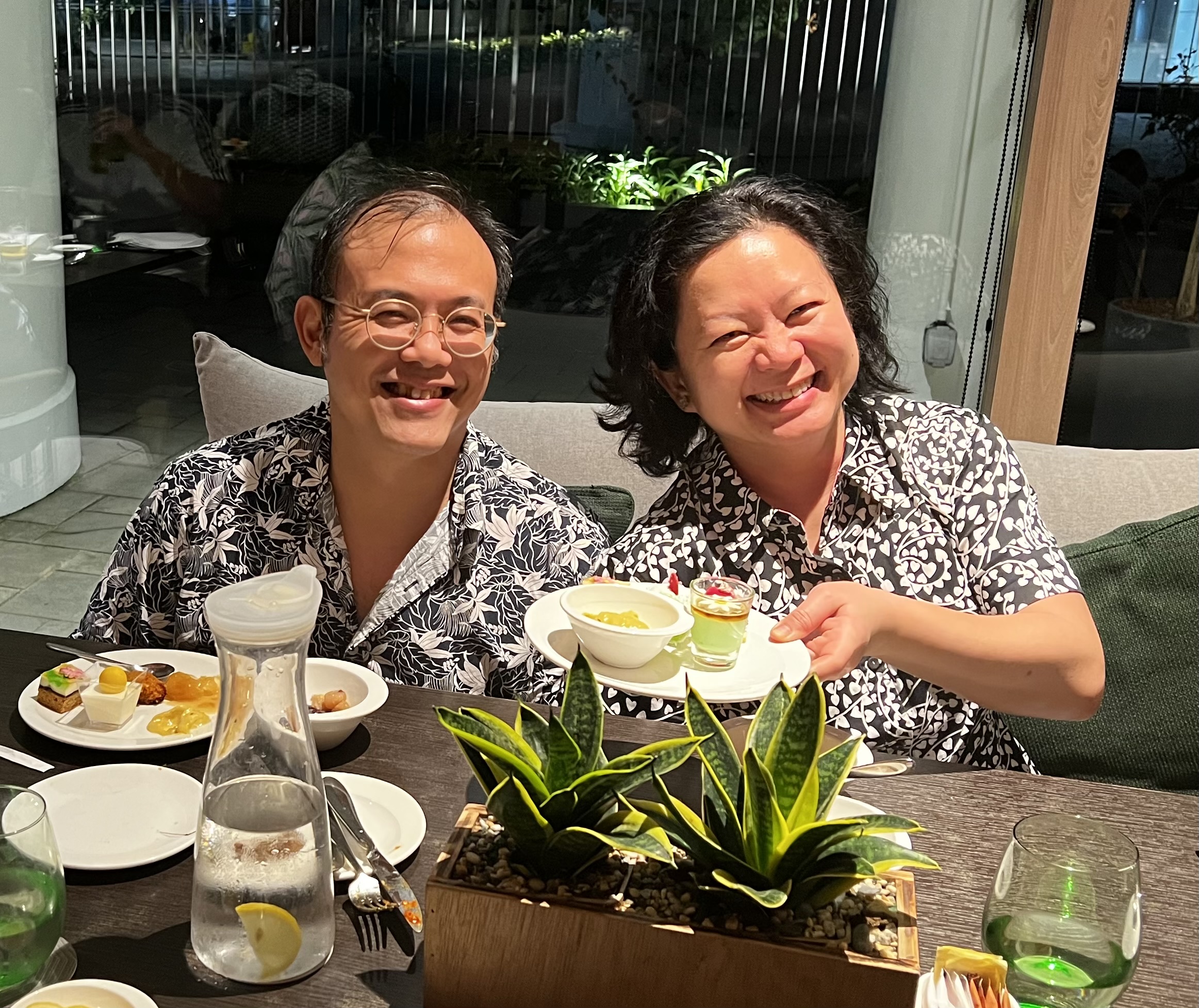This is a kickoff of my Substack and blog short interviews and I am so honoured to feature Christopher Tan, author of the instant classic “The Way of Kueh”. He was so busy launching his fantastic book “Tales from the Yeast Indies” (a sequel to the bestseller “Nerdbaker”), yet he graciously agreed to be my first “casualty”.
I have always admired Chris from afar, never expecting that one day we would become friends. I first noticed his work in Saveur magazine in which he had written about Kaya egg jam. There was a photo of him, working late into the night. With the meticulous details in his writing, I knew that he would become an authoritative cookbook writer. One of the most talented and creative food writers, a passionate baker and a nurturing teacher, he is the gold standard I look up to.
We met under rather distressing circumstances. His friendship is one of the most beautiful outcomes of that period in time.
There are special people in your life whom you have nothing to gripe and everything to praise about. Chris, is one such guy. Of deep faith, he will humbly be the first to say this is all too much. He’s guided me on several recipes, answered queries at any time of the day (just don’t be manic like me and disturb him like I do) and encouraged me when my days are down.
It was natural that I asked Chris if I could peek into his head and understand what inspires him, and get to know him better than simply sitting together for a meal.
You’ve been a food writer for quite some time. What made you decide to write cookbooks and teach cooking classes?
I’ve been a food writer for over 25 years, I started writing cookbooks over 20 years ago, and I’ve been teaching cooking classes for over 17 years. I think it was a fairly organic progression – I enjoy researching and learning things and passing what I learn on to others, whether it’s via writing or speaking or teaching. When possibilities arise for me to stretch out, and careful consideration – and prayer! – give me a go-ahead, then I say yes. As I get older and have more books under my belt, teaching and speaking have become precious opportunities for me to meet my students both in person and virtually, which is really fulfilling for me.
Your last three books, including the latest “NerdBaker 2: Tales from the Yeast Indies” centre on baking and kueh. What made you zero in on these topics?
I am always transfixed by a deep conjunction of certain aspects of culture: food heritage, food science, creativity and innovation, cultural interconnections, material and intangible anthropology. Of the foodways which rest on such conjunctions, baking and kueh happen to be the demesnes which are most immediate to me on a visceral and personal level, and – crucially – the most open to direct and practical investigation. Which is a very highfalutin’ way of saying that “gua sayang masak kueh and roti!” (“I love to make kueh and bake!”)

A selection of books written or co-written by Christopher Tan.
What do you enjoy doing in your free time that does not involve any form of baking and cooking? What’s with the cat photos?
Hahahaha. What is this concept that you call “free time”? The past few years I have spent almost all day every day on my new book…
I like all animals, but I particularly enjoy photographing cats because they have their own agenda quite apart from what we impose on them. Sussing out their personalities and interacting with them is endlessly diverting.
If there is anything you would have liked differently from your current life as a food writer, what would it be?
Had it been viable when I was starting out, I might have gone into music as a career. That said, I have been quite content with it as a hobby – I sang in an a capella group for 12 years.
Among your grandmother’s dishes, what would be your favourite dish of hers and why?
Too many to just choose one, but she made wonderful chicken curry, always served with slices of French loaf. Also – she was Cantonese, married to a Baba – the lor pak koh (savoury steamed radish cake) and wu tau koh (savoury steamed taro cake) she would always make in large quantity for Lunar New Year. My own versions of these, based on my taste memories of the ones she made, are in The Way of Kueh as tributes to her.
You are an advocate for younger food writers. What advice and support would you want to impart to them?
I would say, most of all, you have to stay curious: you have to love both the food and the writing equally; and you have to work equally hard at all of the above – to fan the flame of your interest, and to put in the hard graft to build your understanding of food as well as your mastery of the writing craft.
Also, the internet makes it so, SO much easier to do research these days – but ease of access assuredly does not equate with depth of comprehension. Make something a hundred times, not five times, before declaring you’ve nailed it.
Also also, please don’t view heritage as a paradigm to be smashed and remade – if something has persisted for a century, there’s usually a meaningful reason why – but rather, think of it as a launchpad for further inspiration.
Also also also – support each other. The Singapore nonfiction writers’ community is not large, and fostering camaraderie benefits everyone, something which I see among my poet friends and their peers. It’s not a zero-sum game, so let’s not silo ourselves.
And lastly: take your subjects and your audience absolutely seriously, but yourself – not so much.

What do you admire in a food writer?
This follows on from the previous question. I love writers who enjoy playing with language, and whose abiding love for their chosen subjects shines out from the page. I also love writers who speak with authority born not merely from being omnivorous and opinionated, but from a nuanced perspective informed by lived-in experience and hard work.
When you test recipes, teach or cook for others, you share your finished product with others to try. Do you get anxious about their feedback? How do you process it?
As far as recipe testing goes, I tend not to share recipe trials with anyone until I am already 90% satisfied with the outcome myself. Otherwise, I try to take into account what most people would consider palatable in terms of salt level, chilli amount and so on. Everyone has different preferences and opinions, so I don’t get overly stressed about how they might feel about something – all I ask is that they receive the food with open minds and no preset expectations. I appreciate it when someone gives me detailed feedback, because we both learn from the experience.
You take your own photos. What tips can you share about taking cookbook-worthy photos?
I styled and photographed all the photos for my three most recent books. The main rule I have is to always shoot with natural light, because I believe it brings out the most natural colours of food. Also, I firmly feel that if you have an invested relationship with the food you are photographing – if it’s a family heirloom recipe, or if you’ve spent weeks testing it, or if you simply just love those flavours – then this will improve the photograph, even if in however subtle or imperceptible ways.
What aspects of food bring you the greatest joy?
I love cooking with people, feeding people and eating with people. The importance of food’s role as a strengthener of family and friendship bonds cannot ever be understated, in my view.
If you could plan your last supper, what would it be?
Lots and lots of fried chicken – Indonesian, Japanese, Korean, Taiwanese, American. Really ALL the fried chicken, and as many sambals as possible on the side – sambal belacan, sambal hijau, sambal matah, sambal petis, sambal rica-rica, sambal roa, sambal balado, sambal cincaluk…. And then after the meal, they wouldn’t need to electrocute me, I would self-combust from all the heatiness!
What would you like to be remembered for?
That’s beyond my control, so I don’t waste time worrying about it.
What was the most difficult recipe you ever worked on and why?
I’m still working on it and have been for years! But I won’t say what it is in case it does end up in a future book or project.
Is there anything on your bucket list that you would like to accomplish soon?
A full night’s sleep! Not even joking. I would also love to do grand tours of old bakeries in Europe and SE Asia, although I’m not expecting this to happen anytime soon…

